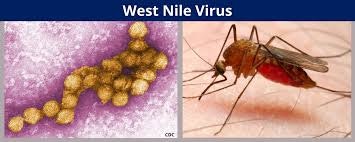First West Nile Virus Death of 2025 Reported in Los Angeles County

Los Angeles County health officials have confirmed the first death linked to West Nile virus (WNV) this year, underscoring the ongoing public health threat posed by mosquito-borne illnesses in Southern California.
The patient, a San Fernando Valley resident, died from a neurological illness caused by severe WNV infection. As of October, 14 infections have been reported countywide—half of them in the San Fernando Valley.
⚠️ West Nile Virus: A Persistent Local Threat
West Nile virus is the most common mosquito-borne disease in Los Angeles County, transmitted through the bite of infected Culex mosquitoes. The virus circulates among birds and mosquitoes and is most active during warmer months, typically June through November.
Most people infected show no symptoms, but about one in five experience fever, headache, or body aches. In severe cases—especially among older adults or those with underlying health conditions—the virus can lead to encephalitis (brain swelling), meningitis, or paralysis.
There is no vaccine or specific treatment, making prevention essential.
🦟 How to Protect Yourself and Your Community
- Use EPA-registered repellents containing DEET, picaridin, IR3535, 2-undecanone, or oil of lemon eucalyptus.
- Dump standing water weekly from buckets, planters, birdbaths, and toys.
- Repair screens on doors and windows to keep mosquitoes outside.
- Maintain pools and spas to prevent mosquito breeding.
“Even a thimbleful of water is enough for mosquitoes to breed,” noted local vector control agencies.
🌍 A Broader Climate Connection
Warmer temperatures and longer summers are extending mosquito seasons and expanding their range, increasing opportunities for diseases like WNV to spread. California’s mosquito control districts, including CCMAD, continue to monitor and test mosquitoes daily to detect viruses early and protect public health.
Community participation remains key: eliminate standing water, use repellent, and report problem areas to your local vector control district.
